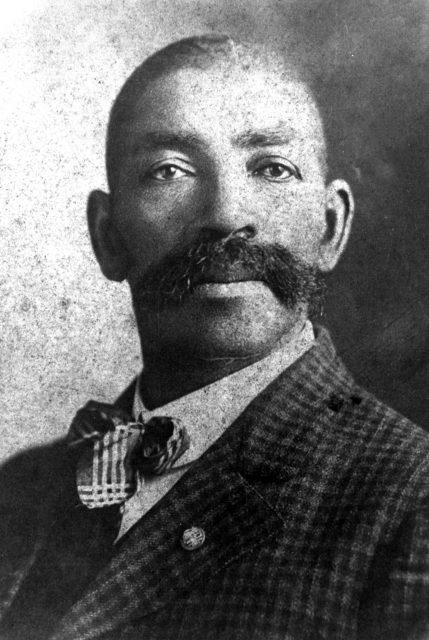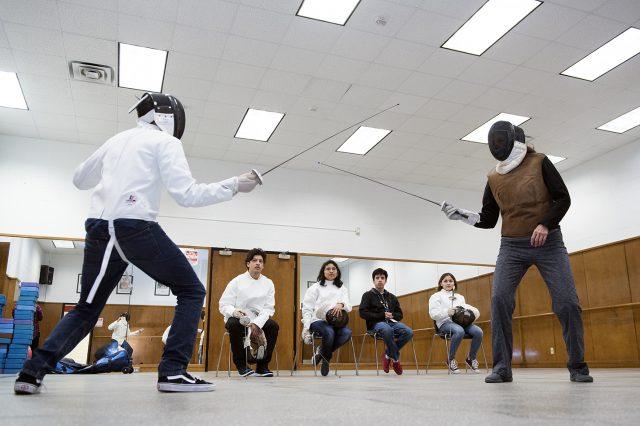By Michael Foster-Sanders/campus editor
NE Campus hosted a Black History Month event to honor Bass Reeves, one of the first African-Americans to hold the post of U.S. deputy marshal, and arguably the model for The Lone Ranger.
James Austin Jr., co-founder with his wife Gloria of the National Multicultural Western Heritage Museum in Fort Worth, spoke Feb. 8 about the history of cowboys being of different ethnicities. Between 30 and 40 percent were African-American, Hispanic and Native Americans.
Austin said that in 32 years as a lawman, Reeves captured over 3,000 felons and shot 14 men in the line of duty, something that is verified in Encyclopedia Britannica
Some reports suggest that The Lone Ranger, first broadcast on radio in 1933, was based on the legend of Reeves, which Austin asserts. Listeners could use their imagination to wonder what The Lone Ranger looked like, he said. But when it became a television show, Austin said instead of it being about an African-American deputy, it was whitewashed due to racism in the entertainment industry.
“Television is how people got their history, so the directors and the producers didn’t see it fit to show African-Americans on TV then, being a racist society,” Austin said. “It didn’t make sense then, and it still doesn’t make sense now.”
Reeves was born into slavery in Crawford County, Arkansas, in 1838 and escaped to Indian Territory in what is now Oklahoma. He lived with the Cherokee, Seminole and Creek Indians. He became a farmer until 1875 when U.S. Marshal James F. Fagan appointed Reeves as the first black deputy to serve west of the Mississippi River.
Student activities coordinator Cara Walker spoke about how the event came to be.
“NE Campus has a committee for Black History Month, and one of the members, Dr. James Varnado of advising, asked could James Austin speak since he’s knowledgeable about Bass Reeves, so we brought him on,” she said.
NE student John Anderson said he appreciated the event because he learned about black history.
“I never knew about this guy, so it was fun learning about someone new, plus it was black history,” he said.
Austin stressed the point of telling history correctly so future generations can know the truth, and that an honest dialogue can happen between people about the importance of different races having cowboys in the Old West.
“We’re in the business to correct knowledge because the museum was founded on a basis of education. We can get the history from books and from the internet, like we did to present information about Bass Reeves,” he said. “It’s an educational piece, and everyone is not going to absorb it. But at the end, you don’t know where you’re going if you don’t know where you came from.’’



































